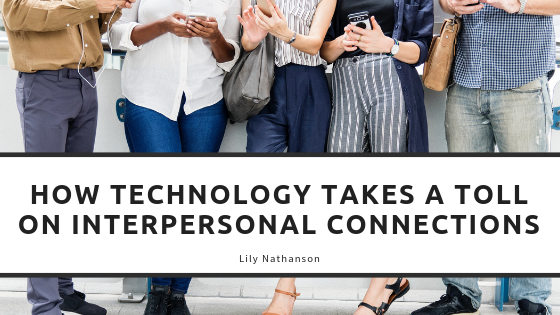The first thing most of us wake up to in the morning is our phones. Almost every hour, people look to their phones to check social media, play games or flip aimlessly through their home screen out of boredom. The world has become consumed by technology. The advancements of technology make day-to-day life a little bit easier, but at what cost? Cell phones and the technology of today are causing an alarming decrease in interpersonal connections.
The addiction to cell phones cannot be dismissed or overlooked. People have become obsessed with checking emails, texts, and social media as much as possible. This keeps individuals from actually engaging in real conversation. Instead of looking a person in the eye while having a conversation, nowadays people are more inclined to stare down at their phone and check their notifications. Often times, it’s hard to actually pay attention to what someone is saying because your eyes are glued to the tiny screen in front of you and your mind drifts elsewhere. This addiction is keeping people only physically present in their interactions and conversations, not emotionally present.
People are becoming more and more disconnected from their surroundings and increasingly focused on phones. In China, there are now texting lanes available so that pedestrians can text and walk at the same time while ensuring their safety. All around the world, people are losing the need to ever look up from their phones. People in the Netherlands no longer need to look up from their phones while crossing the street, because there are now signs that illuminate a signal for them indicating when it is safe to walk. Society is normalizing this disconnect from our surroundings, and it’s negatively impacting younger generations.
Children and teens who have grown up with the many advancements of technology readily available to them are the ones experiencing the majority of the negative side effects. Their overwhelming addiction to smartphones is dramatically impacting their socio-emotional development. Many of these children and teens aren’t even aware of a world before cell phones and social media. They lack basic interpersonal social skills, such as reading facial expressions and perceiving social cues. More and more, children are losing empathy and the ability to have face-to-face conversations. They are as absorbed in technology as adults–possibly even more.
It’s probably not the first time you’ve heard that using your phone too much can keep you disconnected from other people. Many of us know the addiction we have to our smartphones but still choose not to cut back on our usage. Now more than ever, it is essential that you take time every day to put away your phone and focus on building real, in-person connections.

